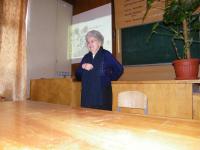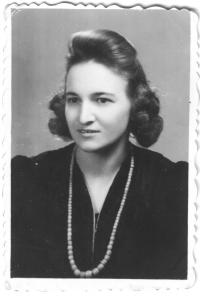I remember whole Decalogue I am a spirit of the eternal element that saved you from the Tatar invasion and put you on a verge two worlds to create a new life

Stáhnout obrázek
Olga Popadyn was born on February 25th, 1923 in Lviv. After Olga finished school she attended technical college up to the arrival of the Red Army. From 1938 she had been Member of Unatstvo (Organization of Ukrainian Nationalists, OUN). She trained as a junior member of organization. After the arrival of the Red Army in 1939, she continued her association with the OUN. In 1940 she was arrested in connection with “Action 59”. She was in Zamarstynyvska prison whilst the investigation was held. Olga Popadyn was sentenced to 10 years of imprisonment for her membership of the OUN. Due to her age, the sentence was reduced to 5 years of imprisonment and 3 years of deportation. In 1941 she was held at the Brygydky prison in Lviv. On 29th-30th June 1941, following the retreat of the Red Army, she was released from prison. In 1950 she graduated from the Economics Institute. The same year for a second time she was arrested and imprisoned in Lonsky prison for 9 months. Without trial, she was sent to a labour camp in Mordovia. In 1953 she was given amnesty and returned to Lviv. At present she is still living in Lviv.

